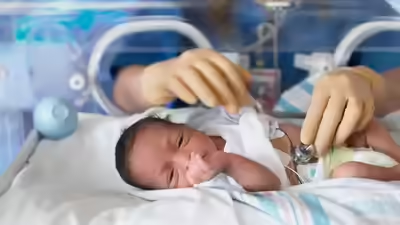
In a landmark development for global child health, a malaria treatment specifically formulated for newborns weighing under 5 kilograms has been approved for the first time.
The breakthrough offers new hope in the battle against one of the deadliest diseases affecting infants across Africa and Asia.
Until now, no officially recognized antimalarial drug existed for babies under this critical weight threshold, leaving the most vulnerable—newborns—without adequate treatment options.
These infants, due to their fragile immune systems and delicate physiology, have long faced elevated risks from malaria, often without safe pharmaceutical solutions tailored to their needs.
Swiss pharmaceutical giant Novartis, in collaboration with the nonprofit Medicines for Malaria Venture (MMV), has developed a pediatric version of its widely used antimalarial drug, Coartem.
On Tuesday, Swiss health authority Swissmedic formally approved the formulation, marking a historic milestone in pediatric medicine.
“Thanks to this validation,” the report notes, “several African countries, particularly exposed to the disease, will be able to accelerate the availability of this specific treatment.”
Health experts believe this development could significantly reduce infant mortality in malaria-endemic regions.
The newly approved Coartem formulation is designed to ensure both efficacy and safety in newborns, taking into account their unique metabolism and sensitivity to medications.
The dosing has been meticulously calibrated to reduce the risk of side effects while maintaining therapeutic strength, offering a safer alternative in the critical early stages of life.
With rising resistance to traditional malaria treatments, this innovation is especially timely.
It not only fills a longstanding gap in medical care but also demonstrates the growing focus on developing medicines that address the realities of the world’s most vulnerable populations.
“This advancement offers hope for earlier and safer treatment,” the article concludes, “capable of preventing the disease from progressing to severe forms.”
The collaboration between pharmaceutical leaders and global health organizations is now set to change outcomes for thousands of infants at risk.



